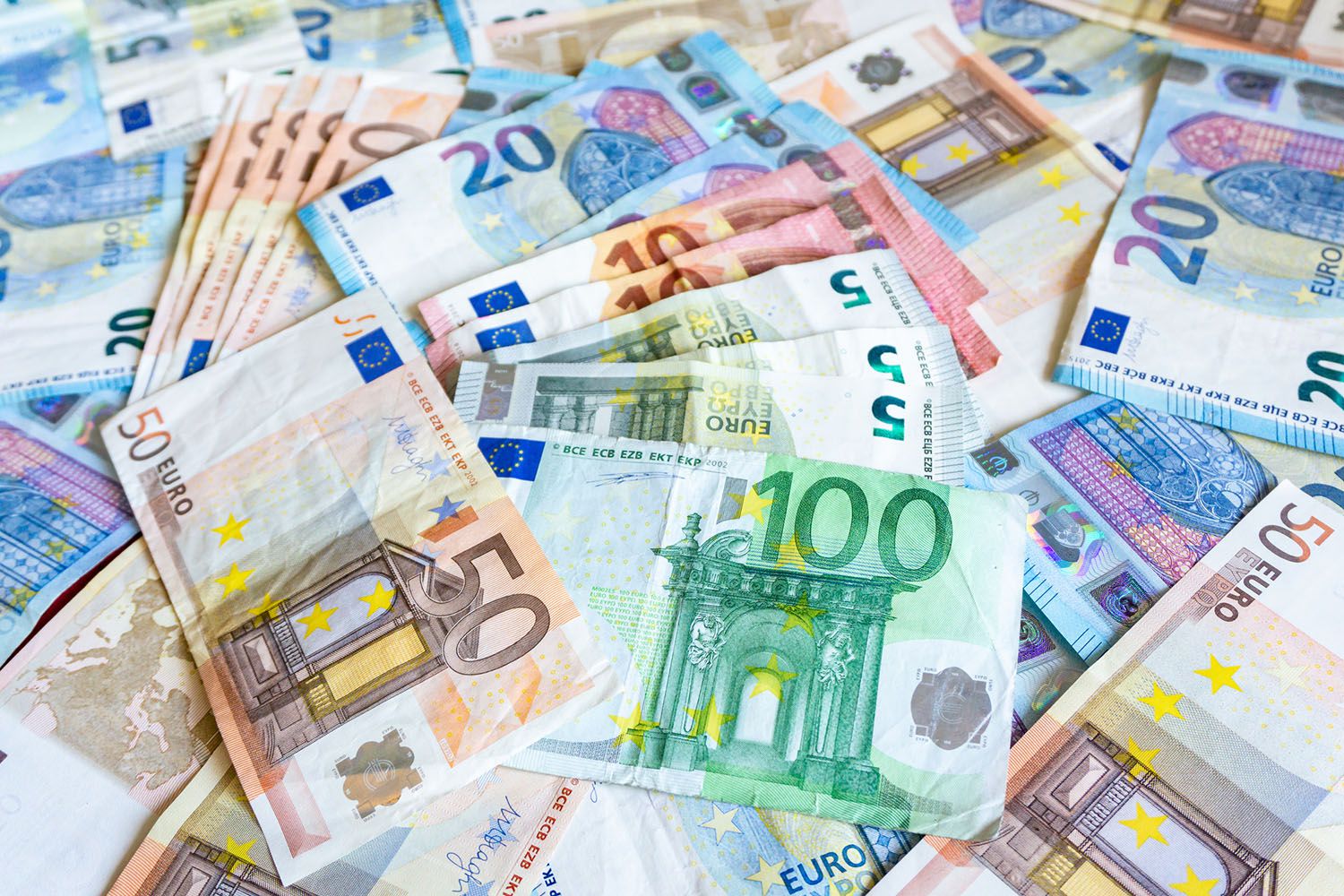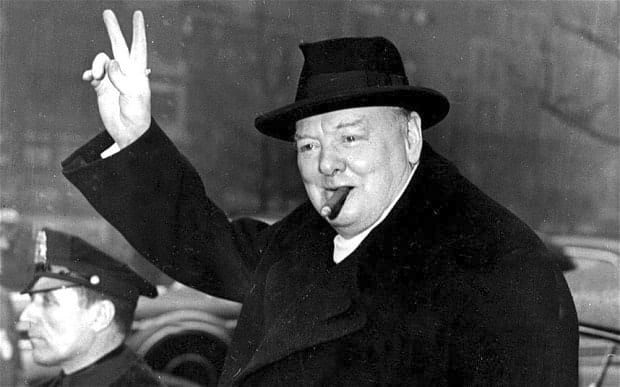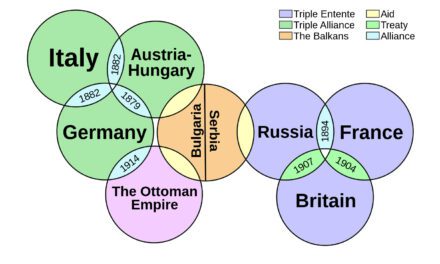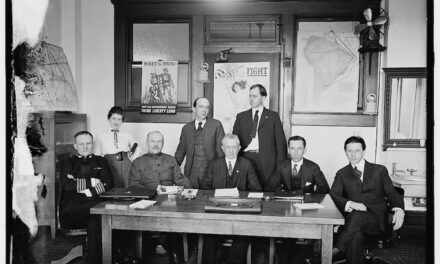THE TEST OF TIME: THE OLDEST COMPANIES STILL IN OPERATION AND WHY THEY SURVIVED
Today’s biggest companies are considered young, especially when compared to some of the oldest companies in the world. While companies like Microsoft and Apple are well on their way to reaching five decades old, that doesn’t come close to the more than 200 years some others have been around for. Several companies have stood the test of time for hundreds of years, the oldest of which dates to 578 CE.
Reading time: 6 minutes
By Madison Moulton
Kongō Gumi
Kongō Gumi is a Japanese construction company established in 578 CE. While the company went through bankruptcy and was purchased by another company in 2006, it continues to operate as a separate entity and is still considered the oldest operational company in the world.
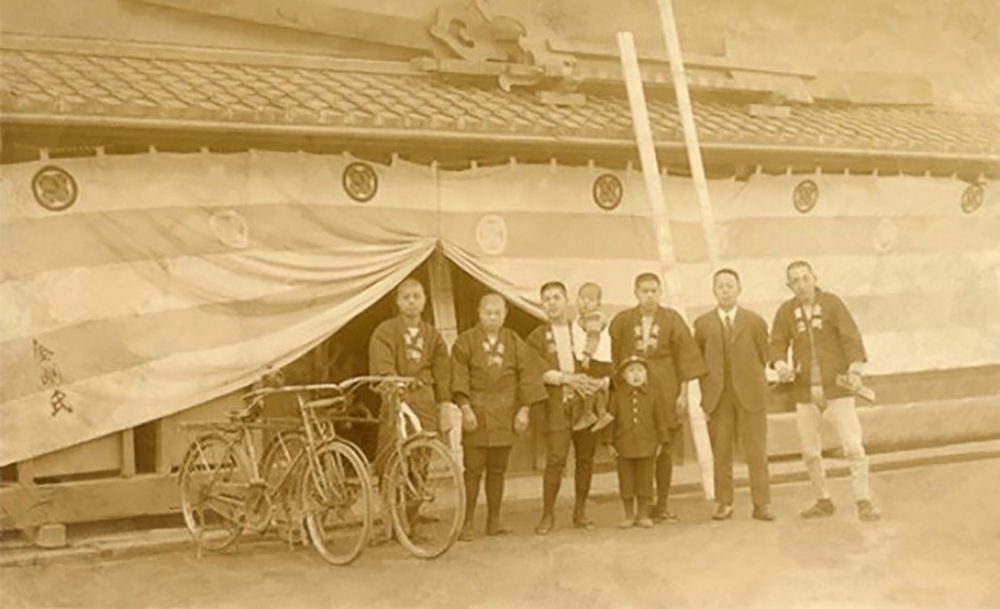
Kongō Gumi opened in 578 CE when three Korean craftsmen were invited to Japan by Prince Shōtoku. They were commissioned to build Japan’s first Buddhist temple Shitennō-Ji. Among the three Buddhist carpenters was Shigetsu Kongō, who would go on to create Kongō Gumi. As Buddhism spread throughout Japan, the company’s scope expanded from maintaining and renovating Shitennō-Ji to building several other temples. The most notable was Osaka Castle in 1583.
Kongō Gumi withstood various political and financial challenges throughout Japan’s history. It continued to flourish under Japan’s 200-year pro-Buddhist era and later withstood the destructive period of anti-Buddhism during the pro-Shinto Meiji period.
Kongō Gumi kept up with political, financial, and technical changes and advances for 1,400 years. It eventually succumbed to financial difficulties in 2006 when it became a subsidiary of the construction company Takamatsu Kensetsu.
St. Peter Stiftskulinarium
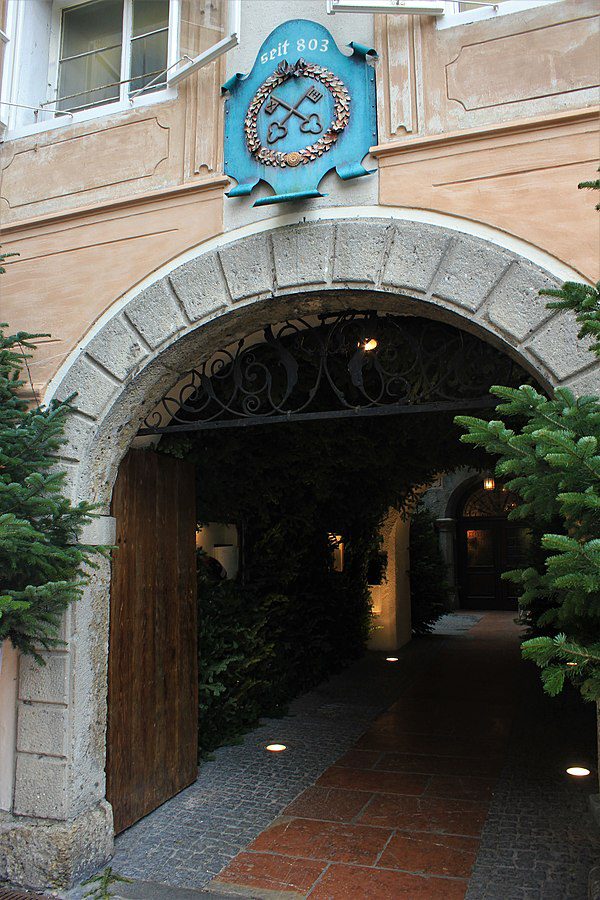
St. Peter Stiftskulinarium – a restaurant and inn situated in Salzburg, Austria – has no definitive establishment date. However, its age is linked to the writings of scholar Alcuin of York, a liegeman of Charles the Great (Emperor Charlemagne). Alcuin mentioned the restaurant in a poem in 803 CE, referencing the St. Peter ‘abbey cellar’.
The restaurant is still housed in its original structure in St. Peter’s Abbey. However, St. Peter Stiftskulinarium had gone through various changes. What started as a restaurant famous for its wine gradually became an inn. By the early 1800s, it acquired its right to brew and serve beer. It’s said that several prominent European figures have been served by the restaurant, including Christopher Columbus, Mozart, and John Faustus.
In 1809, during the height of the Napoleonic wars, it housed French troops. And during the First World War, instead of housing troops, its cellars were raided.
Despite its long history, St. Peter Stiftskulinarium’s first lease agreement was only signed in 1992. This technicality is the reason why it’s not always considered the oldest restaurant in the world.
Since then, the restaurant has continued to shift with the times, but it maintains its long, veiled history within its walls.
Staatsbrauerei Weihenstephan
The Staatsbrauerei Weihenstephan Brewery is largely considered the oldest brewery in the world. This claim is often contested by neighboring breweries and historians as many documents are claimed to have been forged.
However, according to various sources, the brewery’s roots can be traced back to the 700s. Records show that a nearby hops farm paid tithes to the Benedictine monastery in the form of hops. It’s thought the monks within the monastery brewed beer with the hops, forming the foundation of the brewery.
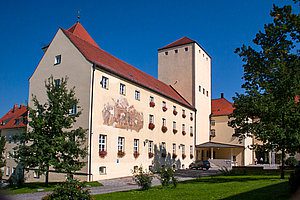
The Weihenstephan brewery’s history takes a 300-year jump to 1040 when the abbey allegedly received a license to brew and sell beer. Many believe this document was forged in the 1600s, although there is no proof of the forgery.
Throughout history, the Weihenstephan Brewery faced several challenges, including three plagues. Between 1085 and 1463, the monastery burned down four times. Over and above that, it withstood several wars, famines, and an earthquake.
In 1803, the Weihenstephan Abbey dissolved and the Bavarian government took control of the land and buildings. The state incorporated it as the Royal Bavarian Brewery Weihenstephan.
The Weihenstephan Brewery would become even more historically significant in 1852 when the state moved the most prominent brewing schools to Weihenstephan. It maintains its prominence to this day.
The Weihenstephan Brewery is one of Germany’s biggest exporters of wheat beer.
Raeapteek
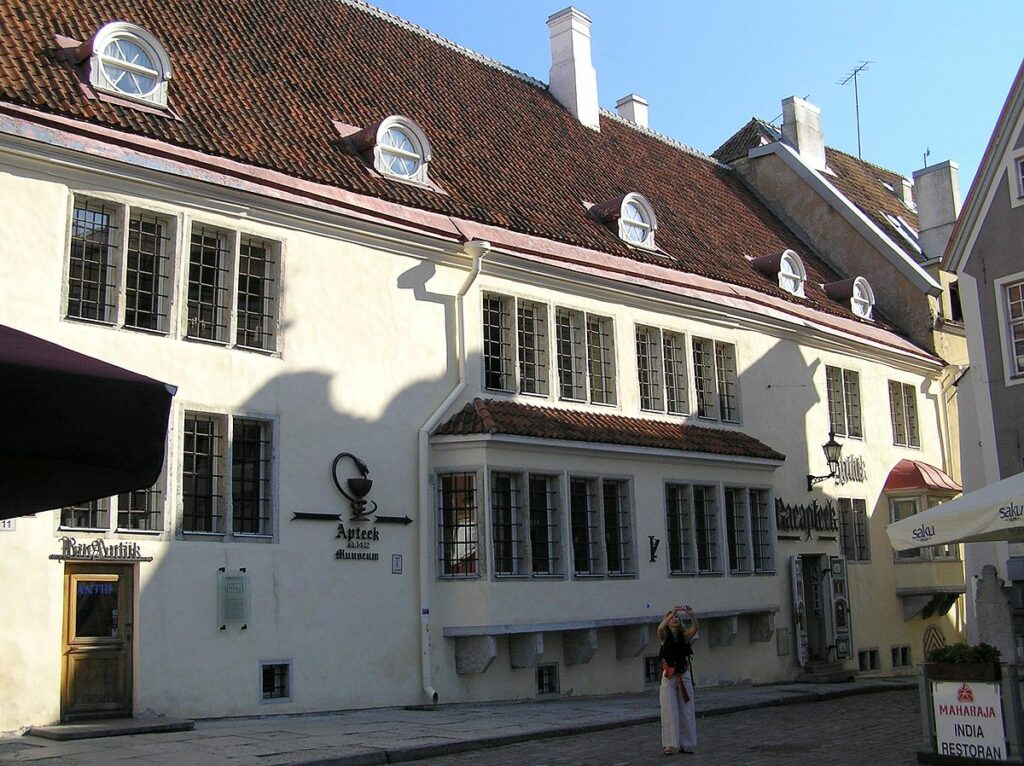
One of the oldest pharmacies in the world is in Tallinn, Estonia. The Raeapteek, which translates to Town Hall pharmacy, is still in operation today in its original building across from the town hall.
There is no exact establishment date, but many believe that the pharmacy opened its doors as early as 1415. Some documents state that by 1422, it had changed owners at least three times.
The family most closely linked to the pharmacy is the Burchard Family who ran the pharmacy for over 300 years. The first in a very long line of Burchards was Johann Burchard-Belavary, an established Hungarian pharmacist. He started that family tradition of naming the first-born son Johann, who was expected to eventually run the pharmacy.
The Burchard family were more than pharmacists, with many eventually becoming doctors and playing major roles in Tallinn’s history. Their pharmaceutical dynasty would come to end in 1911 when the Raeapteek was sold to C.R. Lehbert. In the 1940s, during the second occupation of the Baltic States, it became nationalized.
The Raeapteek was not only a place to buy medicine but a centre for both medical and spiritual assistance. It also sold several other products including tobacco, pipes, paper, wax seals, and even gunpowder. The Raeapteek became a meeting place for many and is often compared to a café. The people of Tallinn would gather at the pharmacy to discuss news, make business agreements, and drink wine.
The pharmacy underwent refurbishment and today it continues to operate as a pharmacy.
Several more companies have stood the test of time, over 5000 have operated for over 200 years. Some are more recently established, such as one of the oldest banks in the world, Brown Brothers Harriman, while others are hundreds of years old. They have all managed to weather shifting political climates, world wars, plagues and epidemics, and major technological advancements.
The above four companies have withstood the test of time for several reasons. While these companies span different eras, countries, and industries, they have some similarities – most notably their roles throughout history. Some had vibrant stories, while others caught the interest of their local governments. But the oldest company in the world, Kongō Gumi, proves the power of a family business dynasty.
Articles you may also like
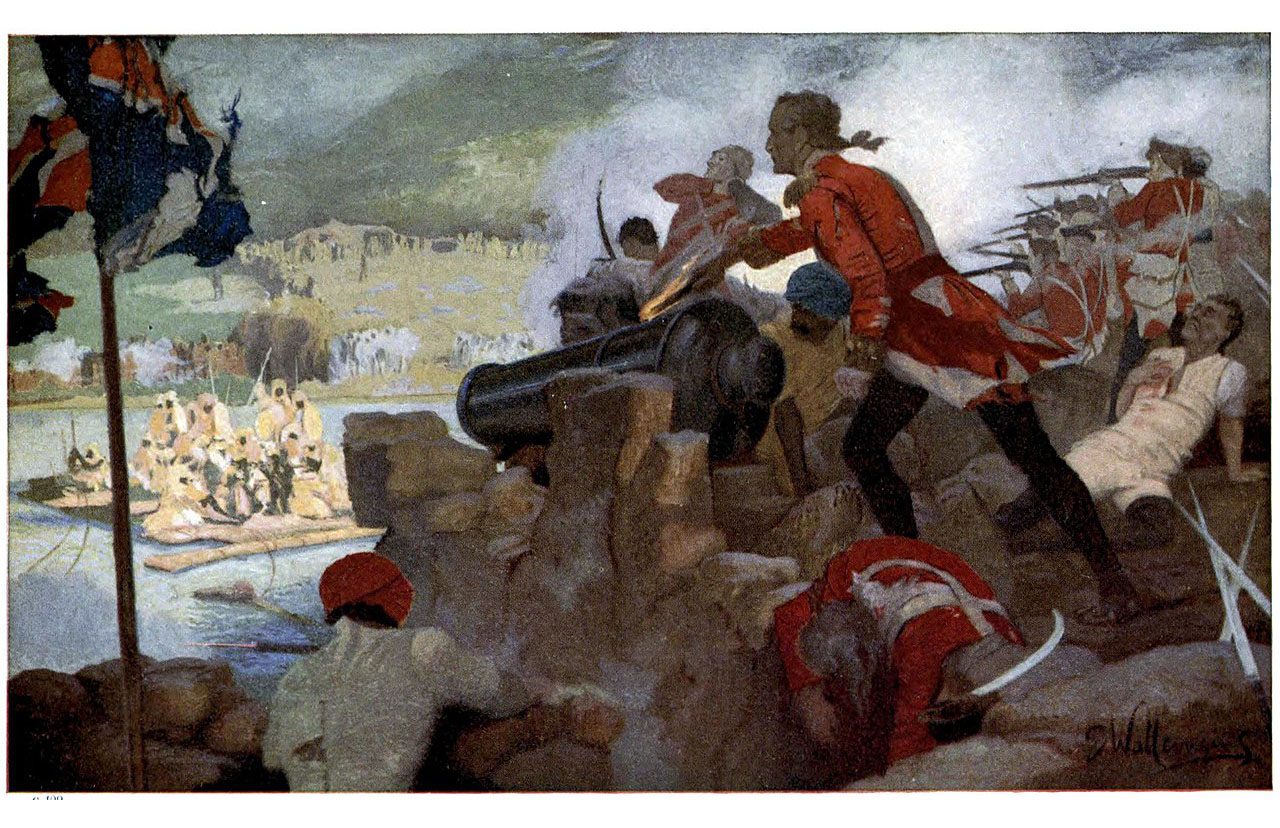
Hero and Villain: Robert Clive of the East India Company
Robert Clive, a general of the East India Company, was despised by his contemporaries – so why was a statue of him erected outside the foreign office by the Edwardians years later? By Dr Suki Haider. In 2020, there were petitions to remove Clive of India’s statue from outside the Foreign Office in London. Leading […]
The text of this article was commissioned by History Guild as part of our work to improve historical literacy. If you would like to reproduce it please get in touch via this form.

